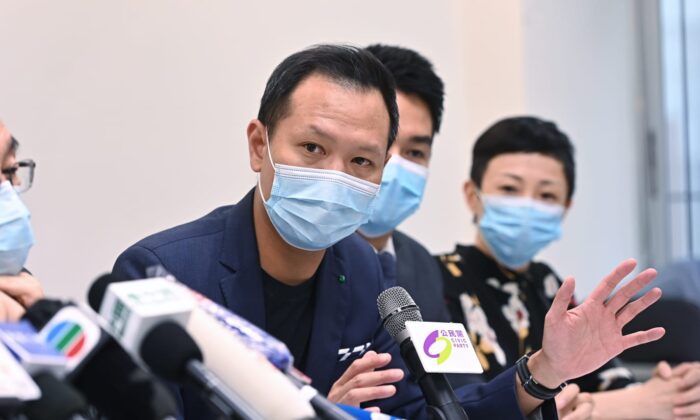U.S. officials condemned Beijing over the Hong Kong government’s decision to disqualify 12 pro-democracy candidates for the upcoming legislative elections currently scheduled in September.
“These actions are further evidence of Beijing’s ongoing evisceration of Hong Kong’s autonomy, as well as of its failure to abide by international obligations under the Sino-British Joint Declaration, a UN-registered treaty, and the rights guaranteed under the Basic Law,” a State Department spokesperson said.
Under the Sino-British Joint Declaration, an agreement signed in 1984 paving the way for Hong Kong’s 1997 handover from Britain to China, the city’s mini-constitution or Basic Law was drafted.
The Basic Law is meant to guarantee Hong Kong a high degree of autonomy for at least 50 years after 1997 under the “one country, two systems” model. However, Beijing’s encroachment in Hong Kong’s affairs in recent years has driven locals to the streets in protest, including the ongoing pro-democracy movement in the city that started in June last year.
Among the 12 candidates disqualified on Thursday were Joshua Wong, the iconic figure from the 2014 Umbrella Movement, and three incumbent lawmakers of the pro-democracy Civic Party, Alvin Yeung, Dennis Kwok, and Kwok Ka-ki. Also disqualified were well-known local activists Lester Shum and Ventus Lau.
The Chairs call on the #HongKong gov’t to rescind the disqualification of #Legco candidates given it clearly violates basic human rights as protected in the #ICCPR & Sino-British Joint Decl., e.g., the rights of self-determination, expression, & participation in public affairs. pic.twitter.com/zgko3Xt4wr
— China Commission (@CECCgov) July 30, 2020
Sen. Marco Rubio (R-Fla.), chairman of the Senate Foreign Relations Subcommittee and co-chairman of the Congressional-Executive Commission on China (CECC), issued a statement condemning the Chinese Communist Party (CCP) over the mass disqualification.
“The Chinese Communist Party’s determination to remake the city in its image is an outrage and a tragedy for those who support the cause of freedom,” Rubio stated.
He said the Hong Kong government’s action “strips the Hong Kong people of their voice and secures Beijing’s control of the city.”
“The U.S. and the international community must respond to these assaults by the CCP and assist Hong Kongers who will need protection from political persecution,” the Senator concluded.
Since the Hong Kong government’s announcement of the mass disqualification, people have taken to the official Facebook account of pro-Beijing Hong Kong leader Carrie Lam, commenting on her last post on July 25 to express their anger.
One Facebook user wrote: “Today you DQ our liberal candidates, tomorrow the whole western world will DQ your whole government.” DQ stands for disqualification and it is commonly used in Cantonese conversation.
Another Facebook user asked that Lam to disqualify herself from her position as the city’s chief executive, given her low support rating of 28 percent.
Hong Kong’s Liaison Office, the top representative of Beijing in the city, in a statement issued Thursday night, voiced support for the Hong Kong government over its action to disqualify the 12 candidates. It then accused these candidates of carrying out actions that “crossed the bottom line of the law,” such as asking foreign governments to sanction Hong Kong.
China’s hawkish state-run media Global Times warned on its Twitter account: “The possibility that more candidates would be disqualified is not ruled out.”
Washington-based group HKDC, in a statement, said “The political purge continues in Hong Kong today. We stand with the 12 brave pro-democracy candidates who got disqualified and banned from LegCo [Legislative Council] elections. They are the true leaders for the real Hong Kong.”
The State Department spokesperson also expressed concerns about the arrests of four students in Hong Kong on secession charges under the newly-implemented national security law on July 29.
“This is a worrying precedent and demonstrates the chilling effect of the new law on the rights and freedoms of people in Hong Kong,” the spokesperson said.
The spokesperson added: “It also highlights Beijing’s dystopian vision of an invasive information security state, where even private conversations are subject to government scrutiny.”
Focus News: US Expresses Concerns Over Candidate Disqualification, Recent Arrests in Hong Kong
